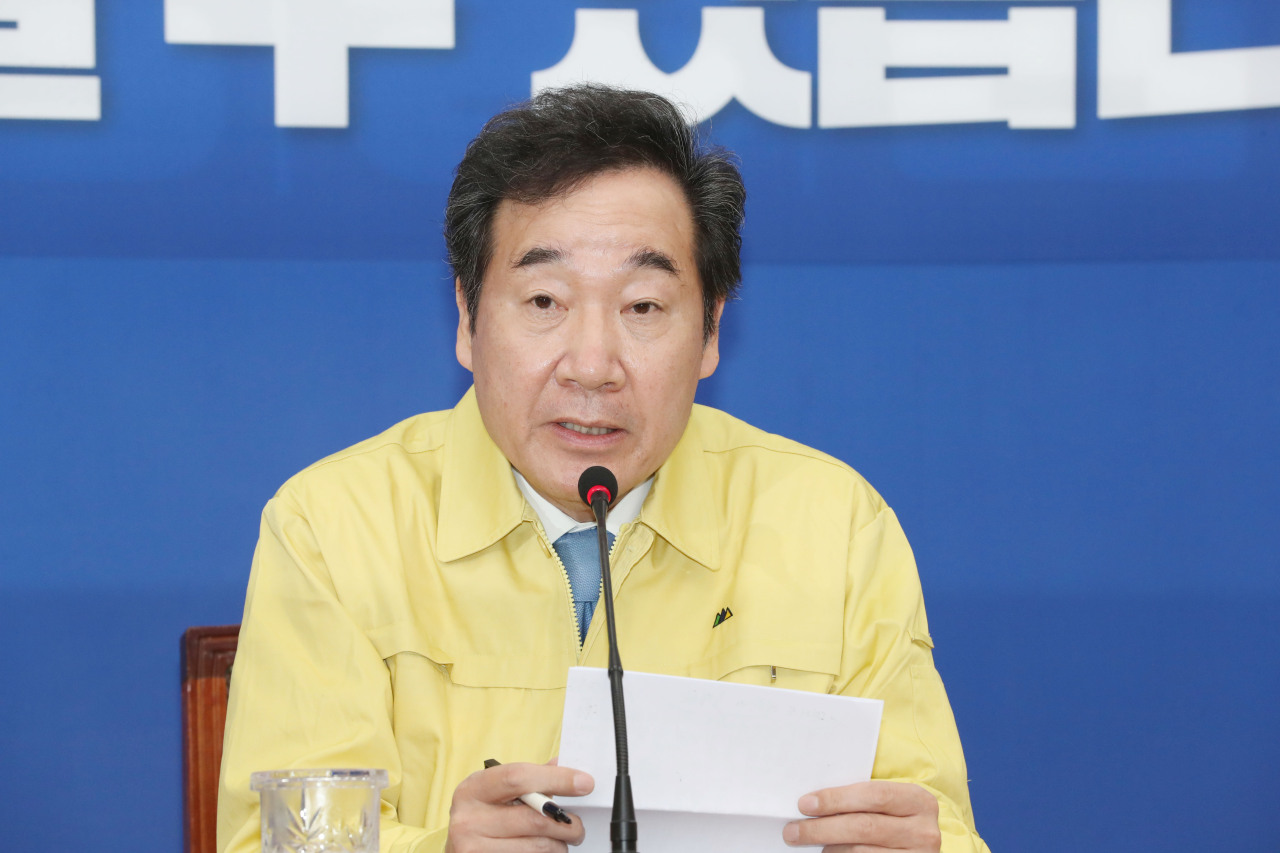 |
(Yonhap) |
South Korea’s upcoming supplementary state budget to fight the ongoing spread of the new coronavirus is anticipated to exceed 11.6 trillion won ($9.7 billion), according to a senior policymaker Tuesday.
“In addition to the already announced set of comprehensive measures, (the government) has drafted an extra budget bill that exceeds 11 trillion won in volume,” said Lee Nak-yon on Facebook.
Former Prime Minister Lee presently serves as chairman of the ruling Democratic Party’s general elections preparation committee as well as chief of the COVID-19 countermeasures task force.
He made the remarks after attending a government-ruling party consultative meeting at the National Assembly.
During the occasion, Deputy Prime Minister and Finance Minister Hong Nam-ki vowed to submit the budget bill this Thursday for swift passage.
The ruling party’s chief policymaker Rep. Cho Jeong-sik suggested that the scale of the budget is likely to far exceed 6.2 trillion won, which was the amount of extra budget drawn up during Middle East respiratory syndrome in 2015.
Once approved by parliament, the budget will be used to finance the government’s quarantine measures and support small business owners who have suffered as a result of the outbreak and the consequent dip in consumer sentiment. It will also include compensation for hospitals and other businesses that had to shut down.
While the amount mentioned by the finance minister and ruling party lawmakers came in terms of expenditure, the prime minister addressed the budget in terms of expenditure and revenue combined.
Back in 2015 during the MERS outbreak, the government effectuated an extra budget bill of 11.8 trillion won, of which expenditure accounted for 6.2 trillion.
The extensive budget road map for this year, however, also rekindled concerns on the nation’s fiscal soundness.
In this year’s budget plan, Korea saw its sovereign debt climb to 805.2 trillion won, up 64.4 trillion won from the previous year. Assuming the addition of an extra budget in the 11 trillion won range, the country’s sovereign debt ratio to its gross domestic product is likely to surpass the 40 percent mark.
As of now, the Organization for Economic Cooperation and Development defines Asia’s fourth-largest economy as “fiscally sound,” but anxiety has been mounting lately in light of the aging demographic trend. The National Assembly Budget Office, in its midterm outlook report, claimed that the sovereign debt ratio could rise as high as 56.7 percent by 2028.
By Bae Hyun-jung (
tellme@heraldcorp.com)







![[Today’s K-pop] Blackpink’s Jennie, Lisa invited to Coachella as solo acts](http://res.heraldm.com/phpwas/restmb_idxmake.php?idx=644&simg=/content/image/2024/11/21/20241121050099_0.jpg)
